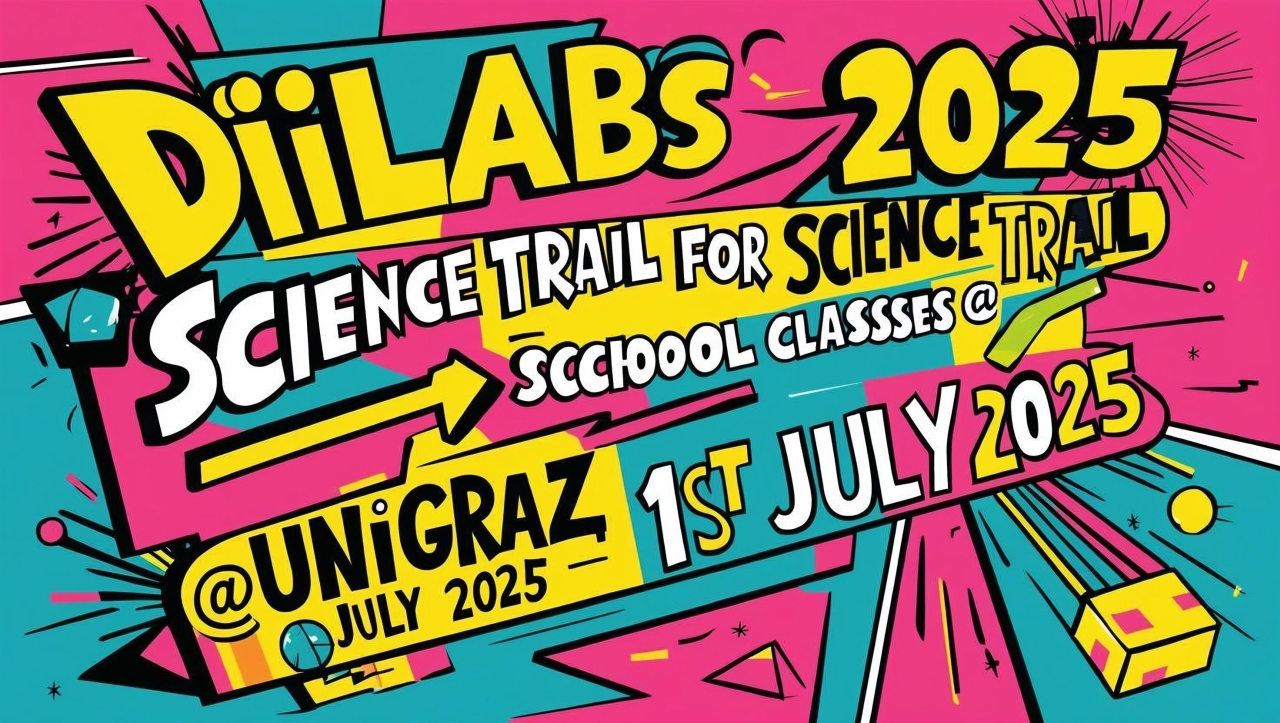Science trail for school pupils
FUTURE EDUCATION brings educational research to life!
Photo series: This was the Science Trail 2025
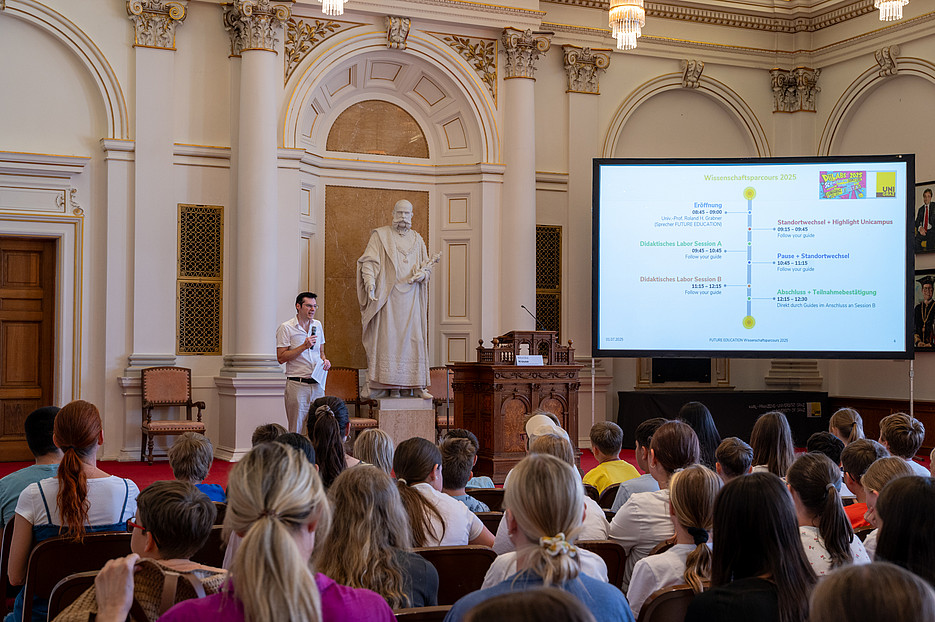
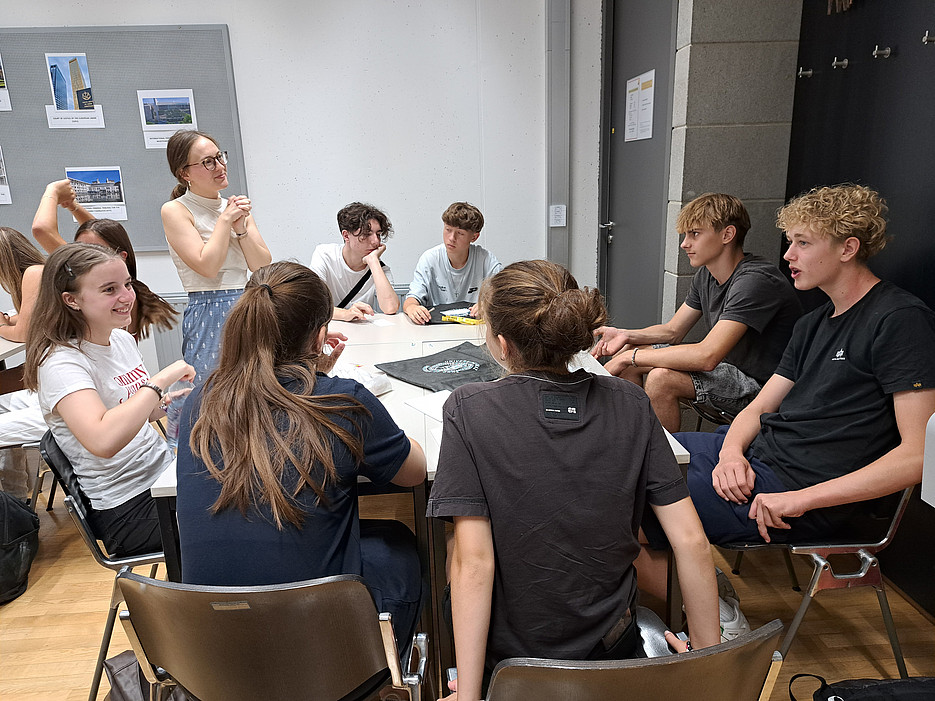
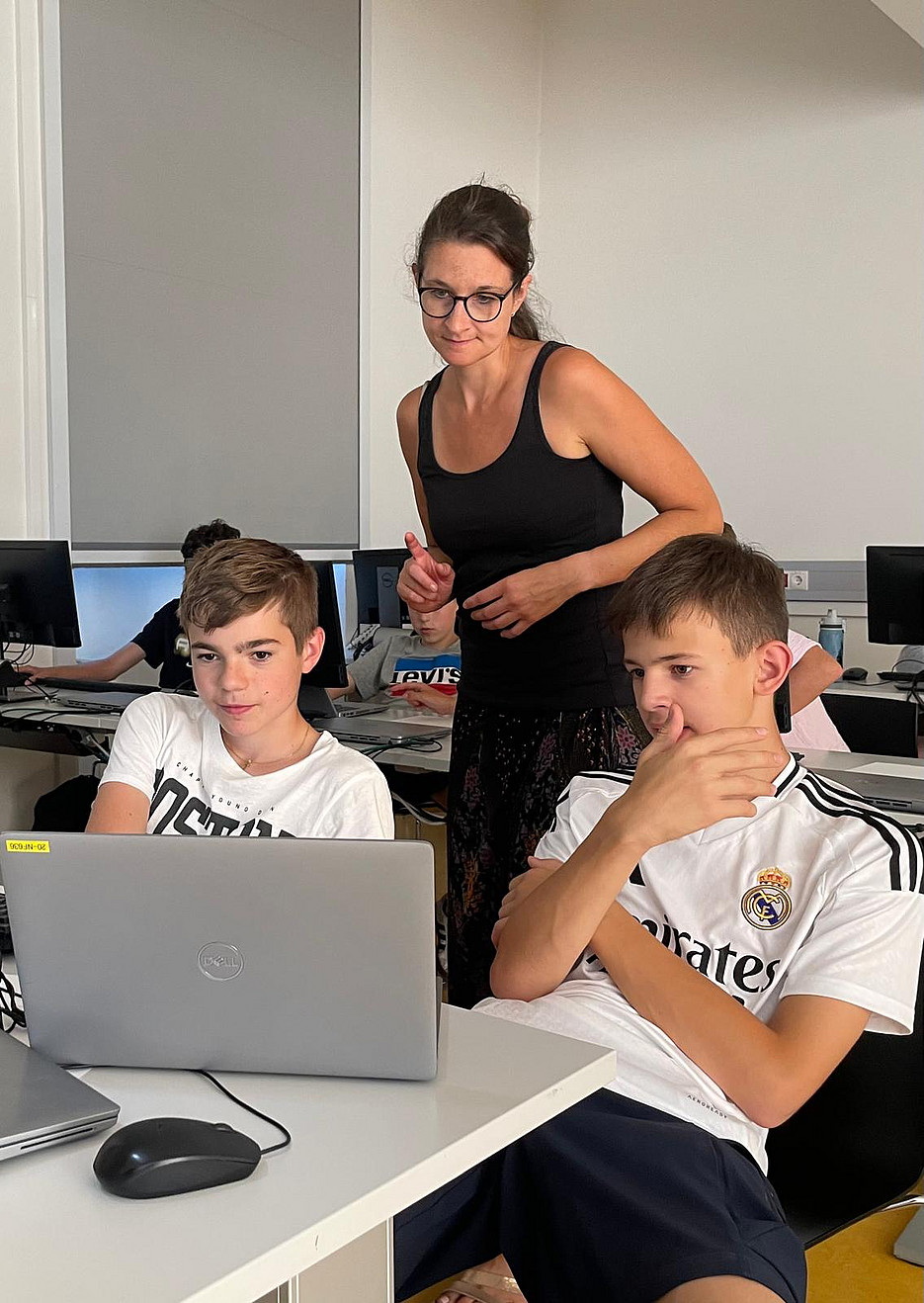
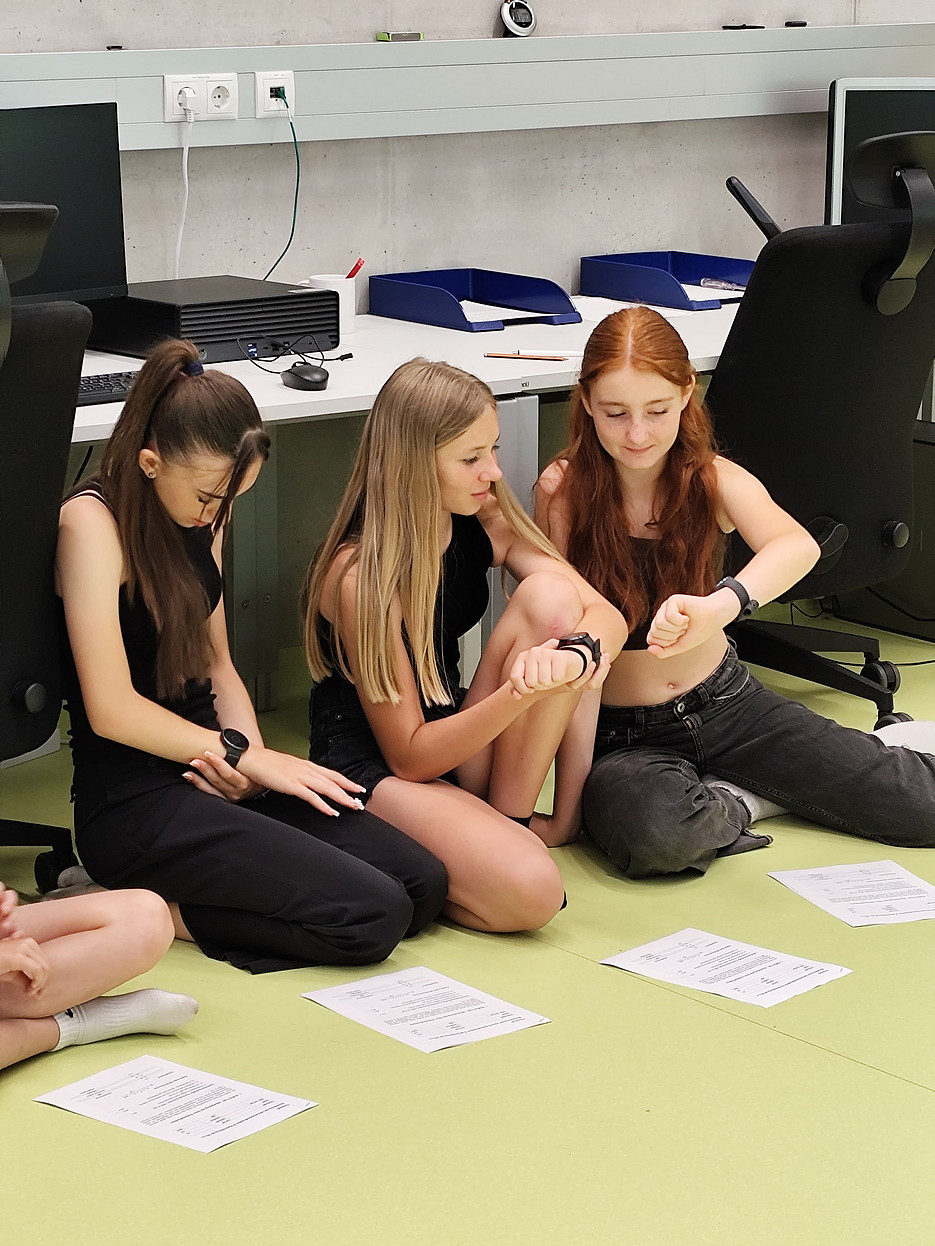
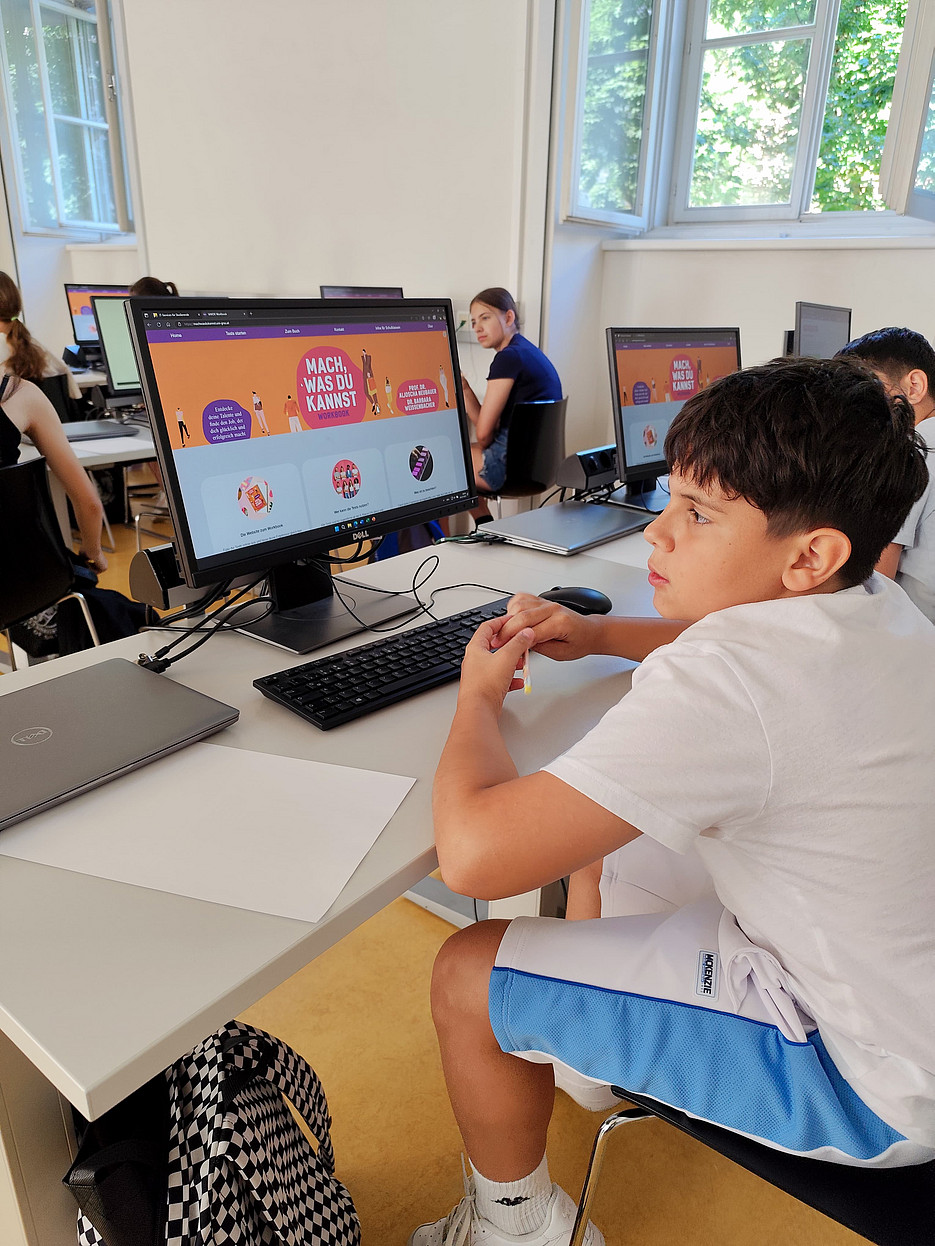
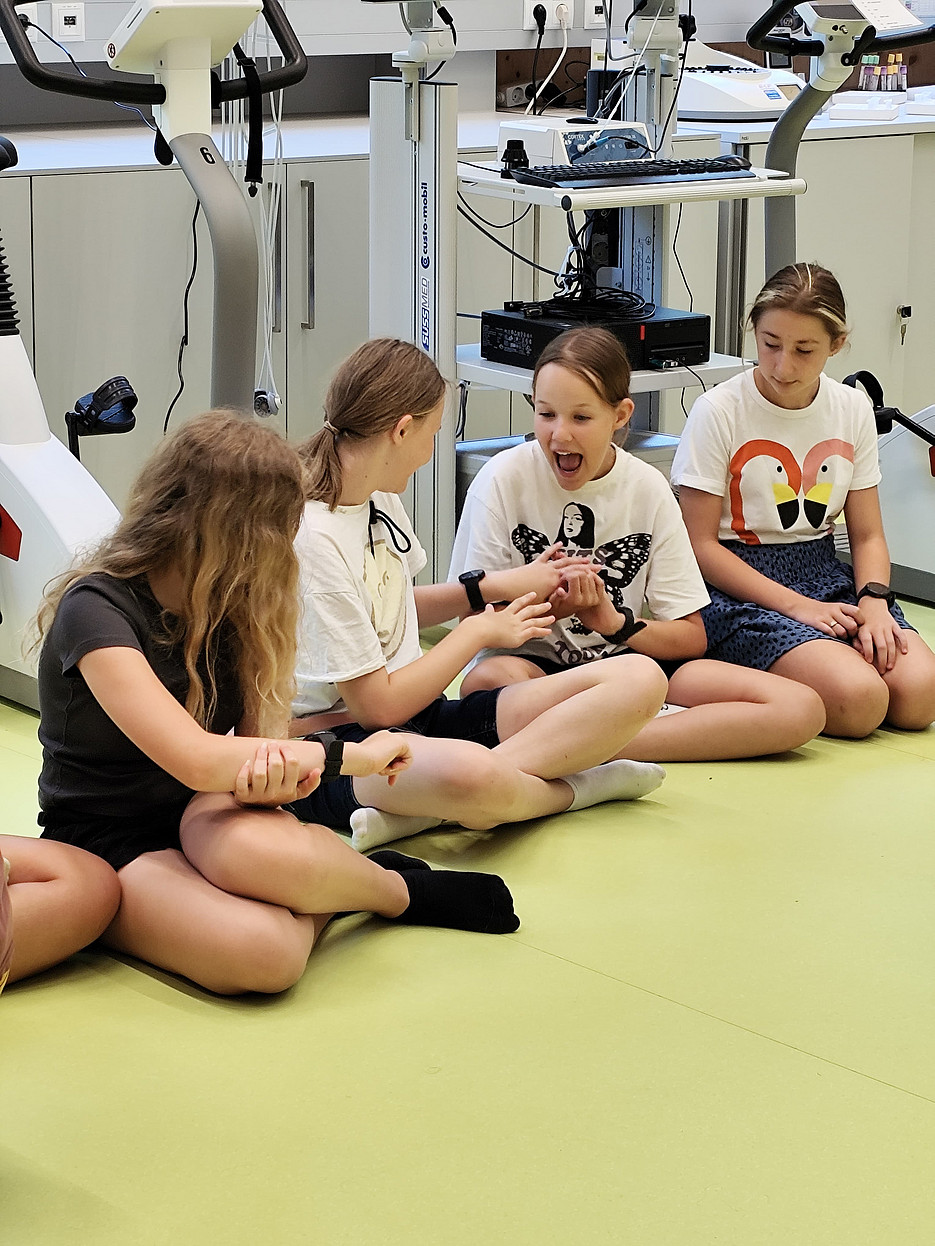
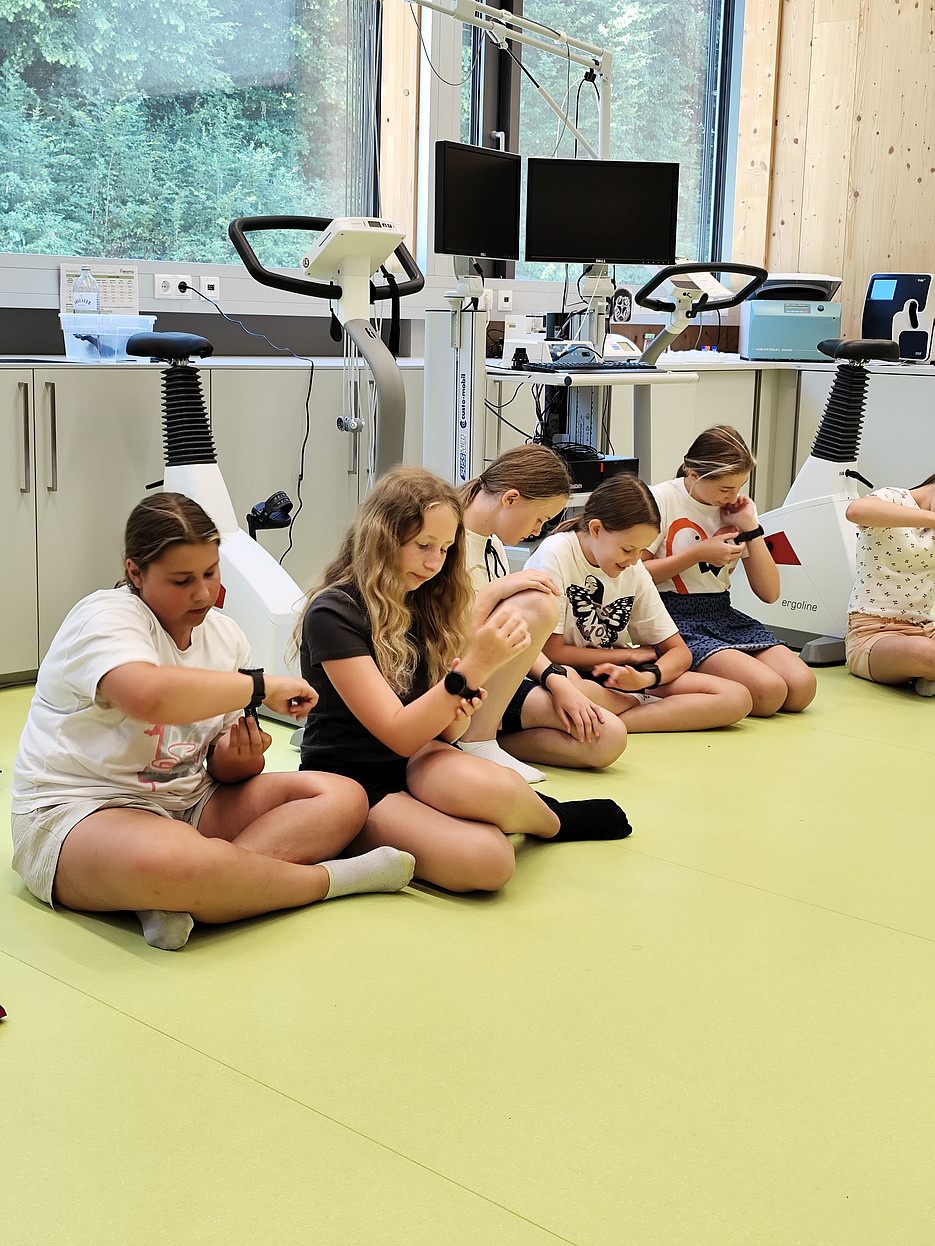
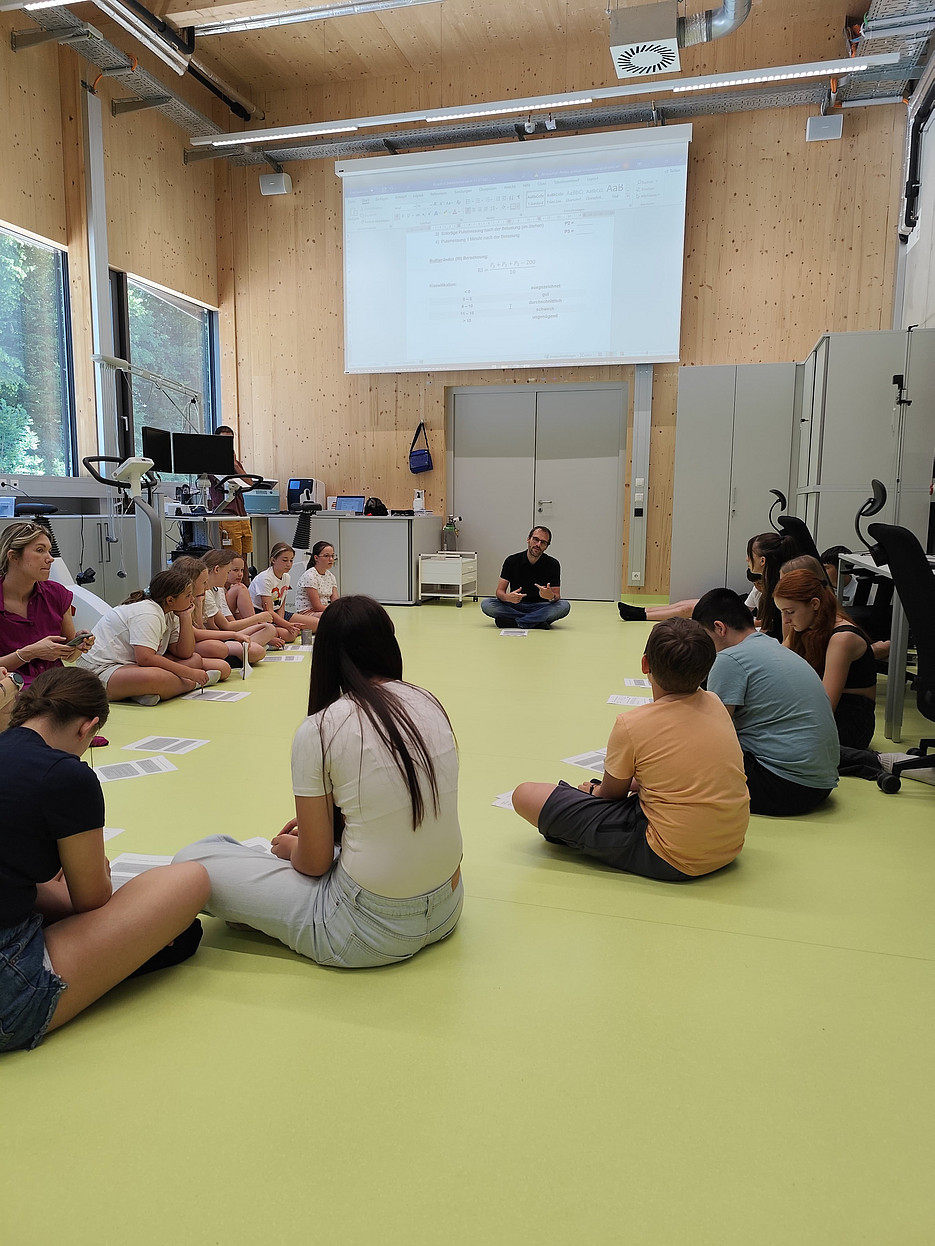
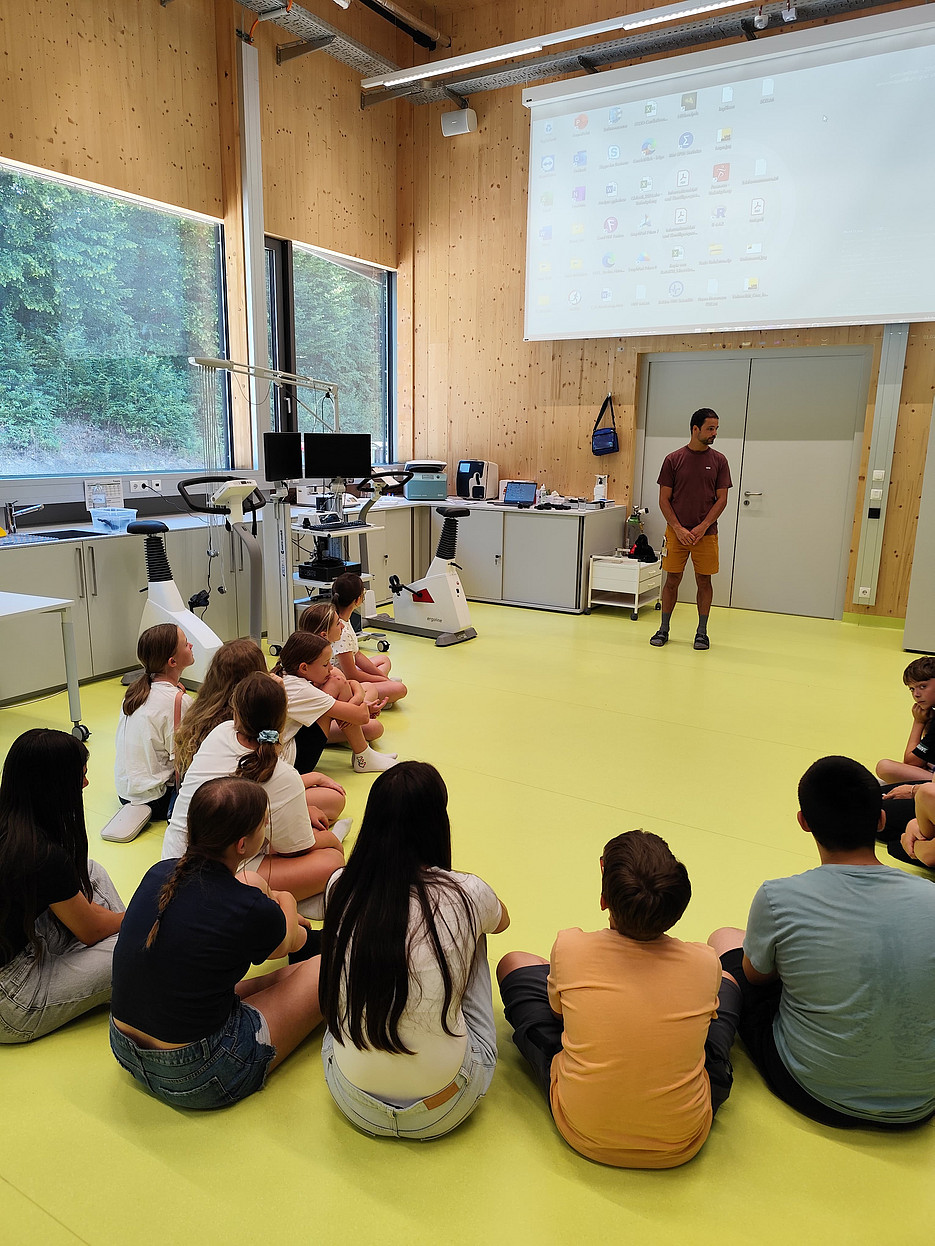
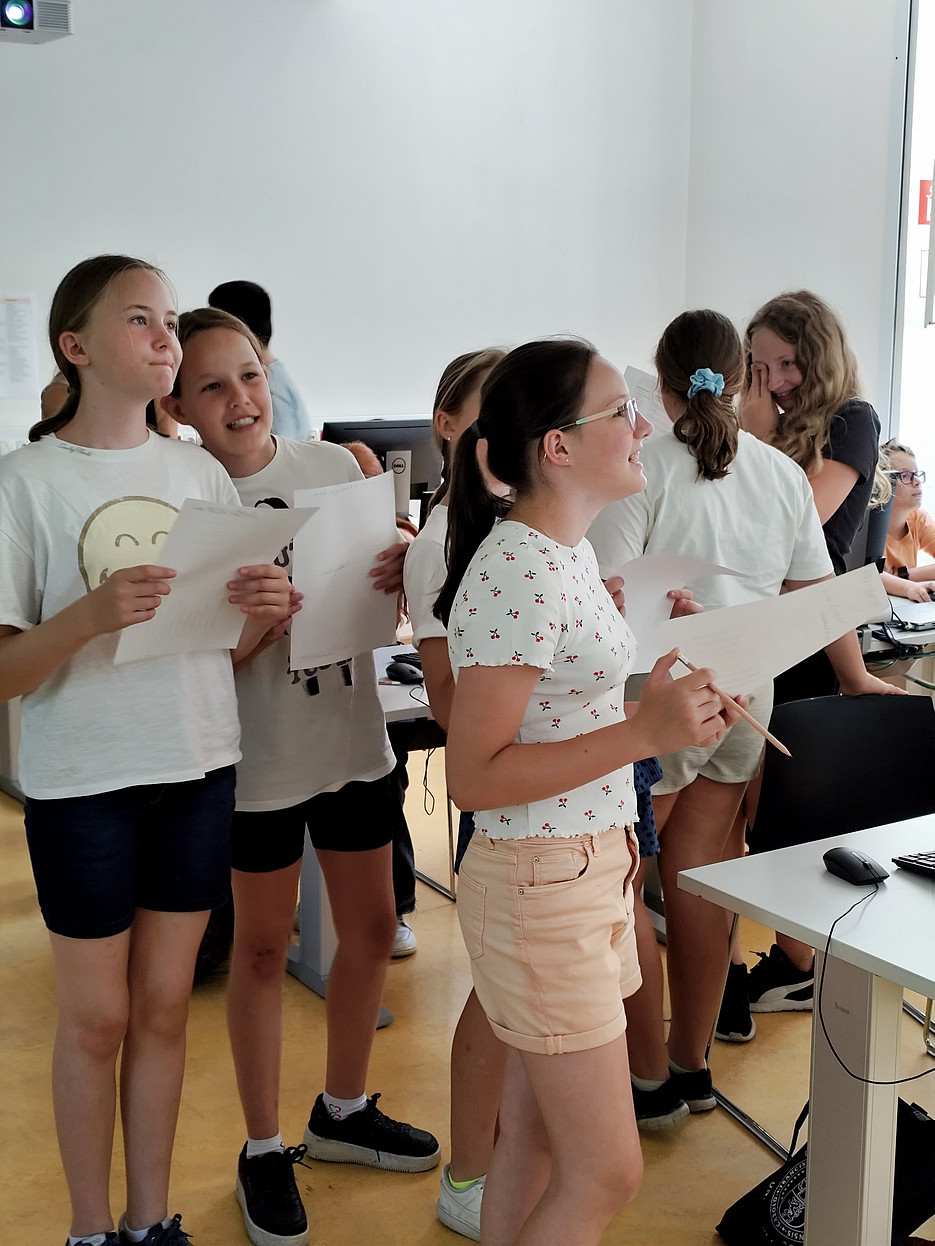
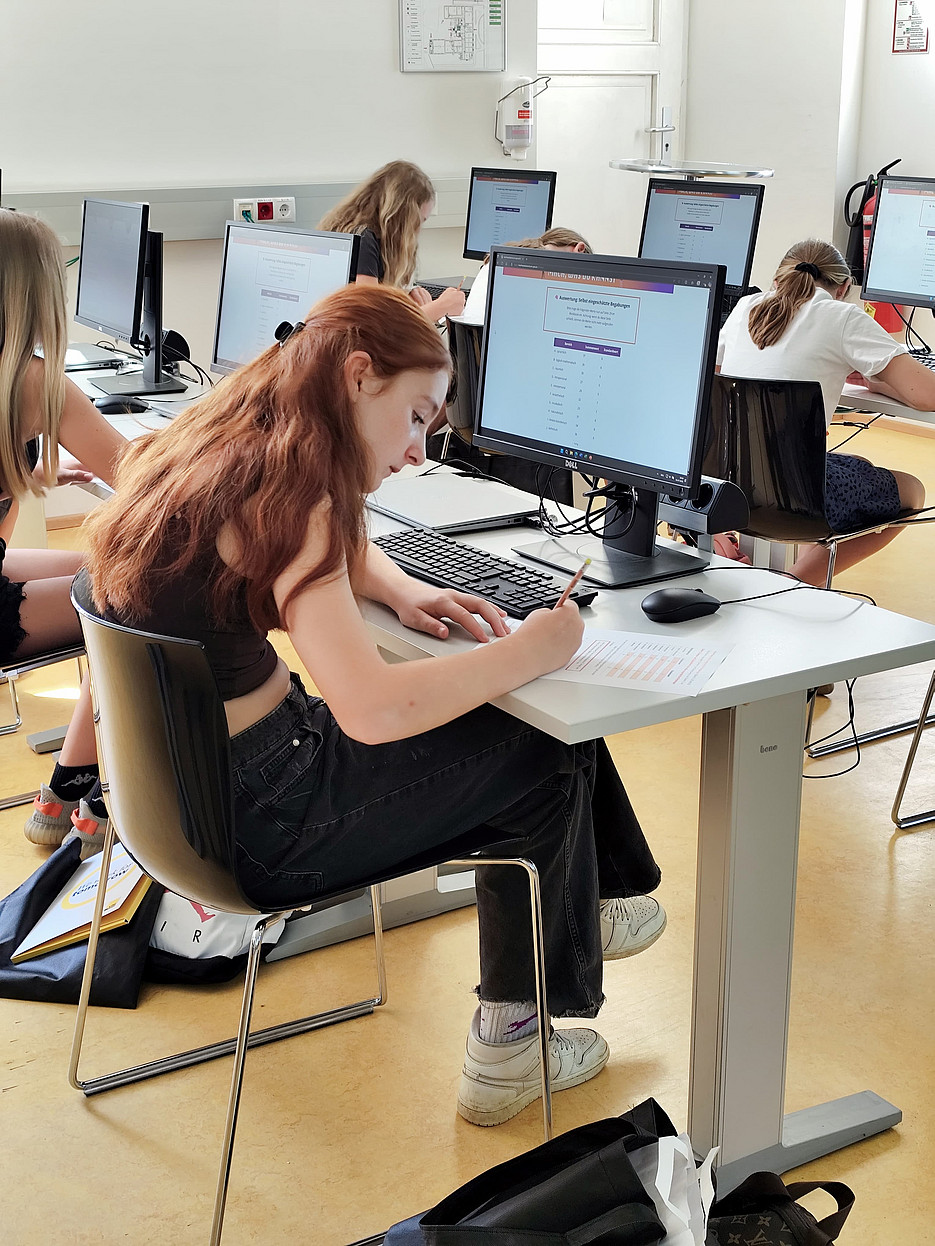
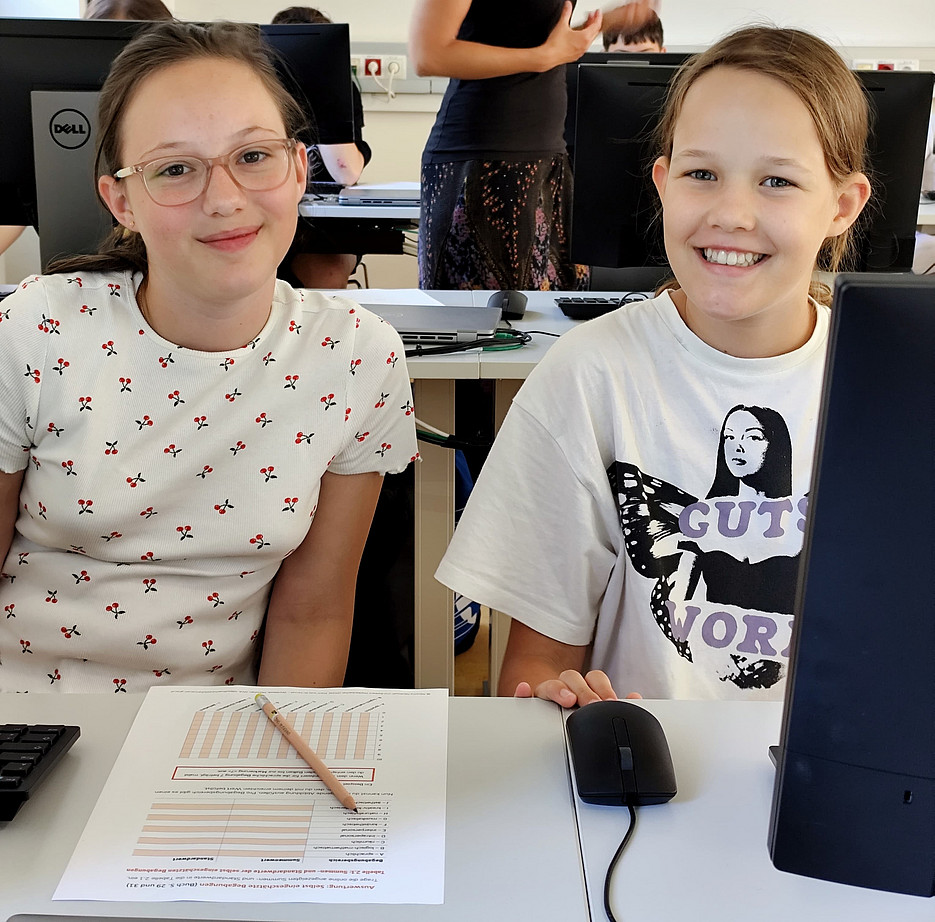

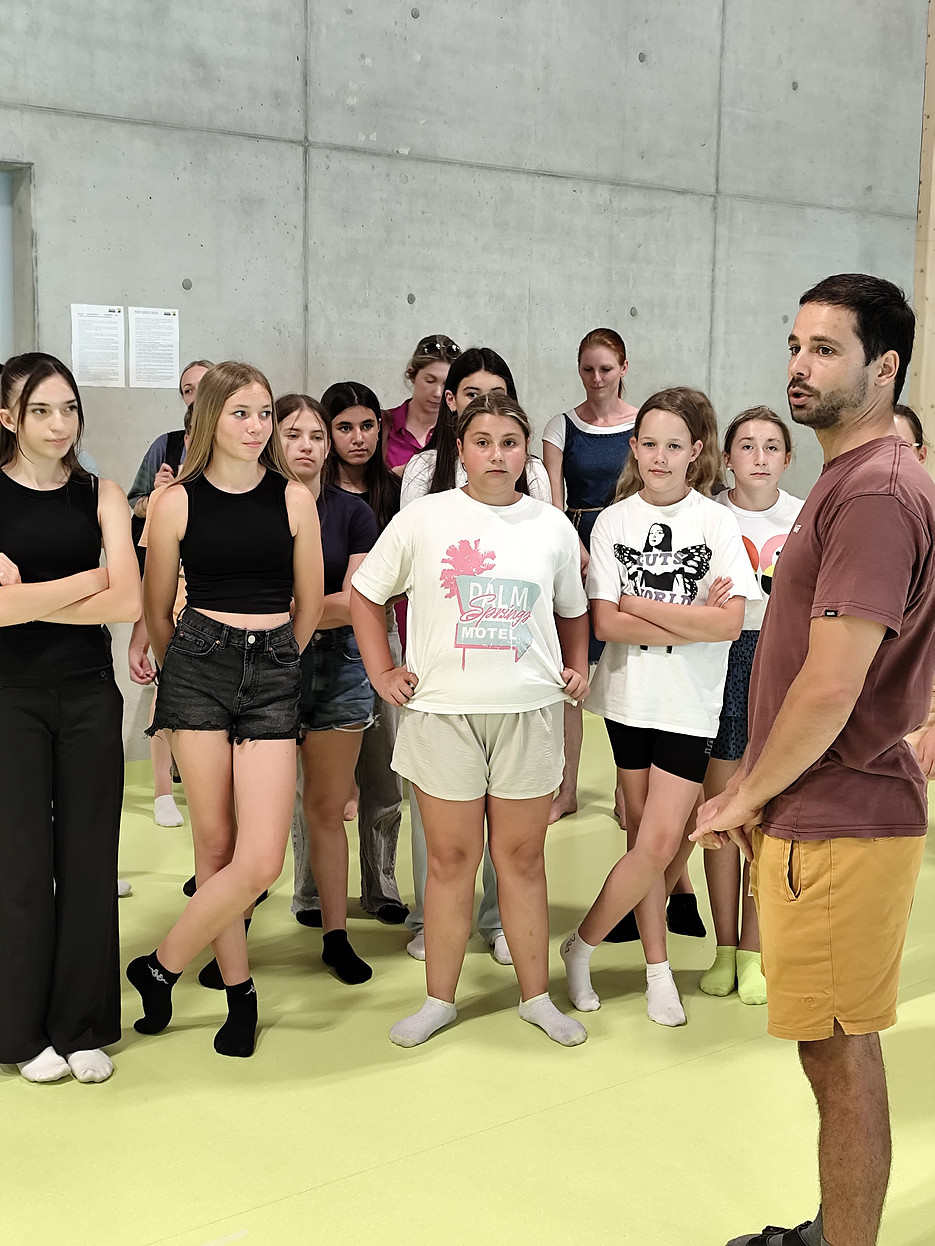
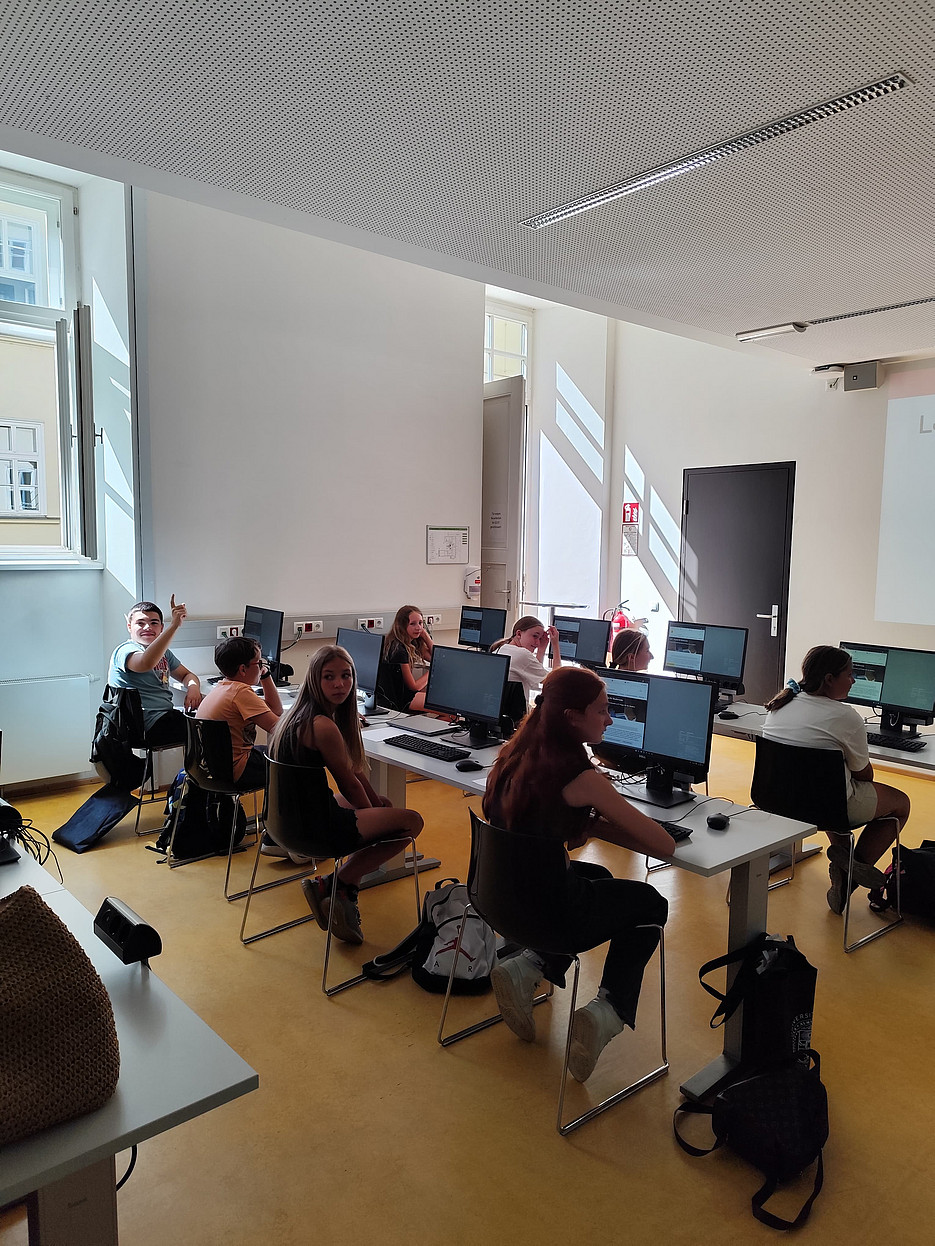
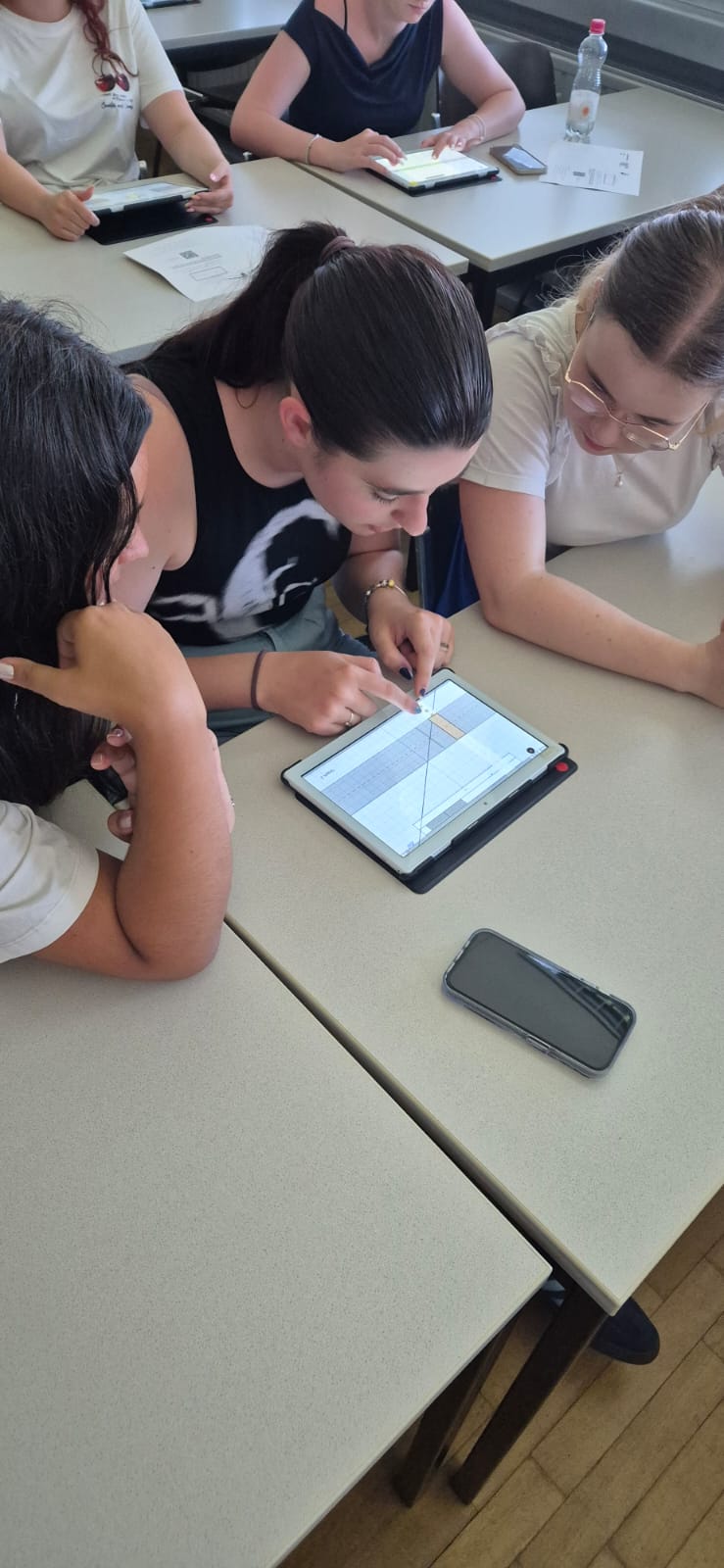
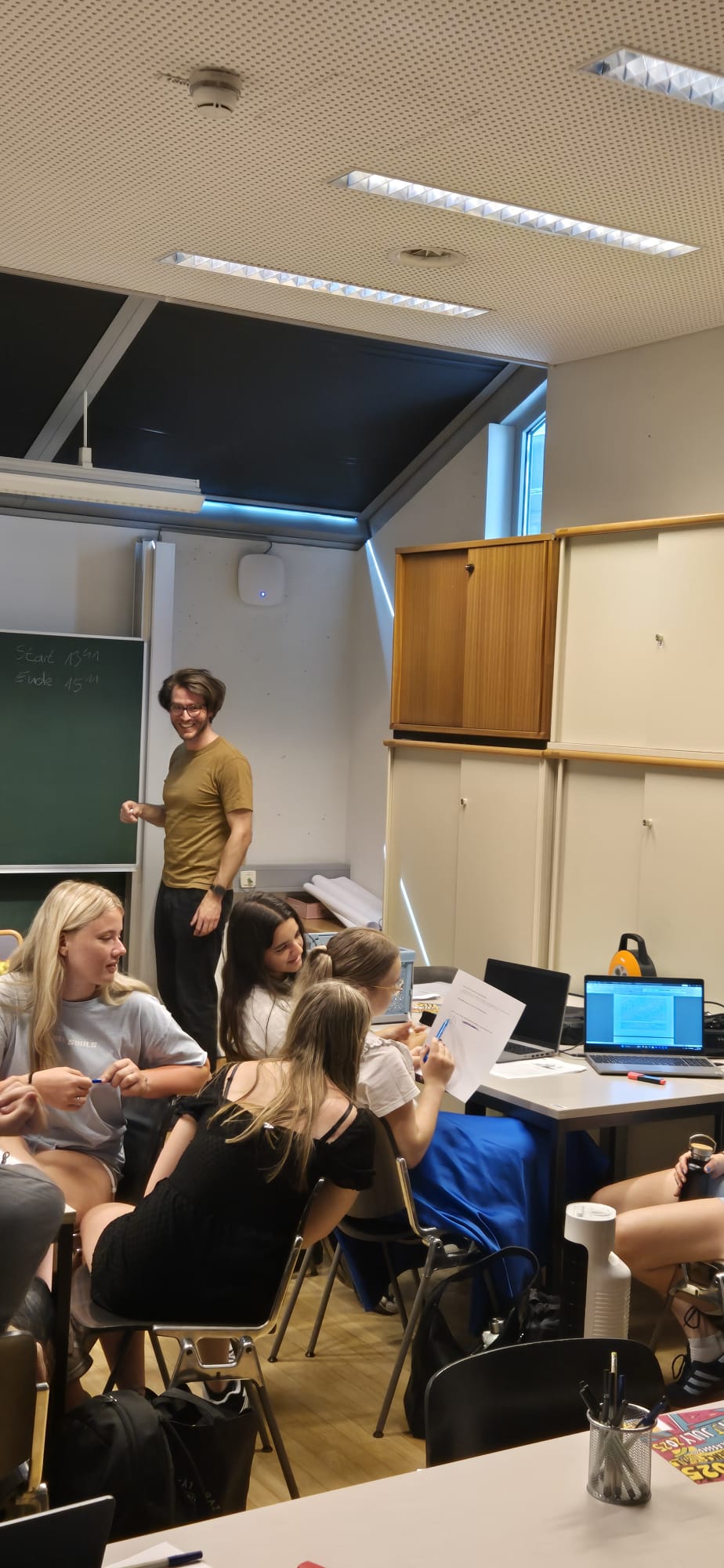
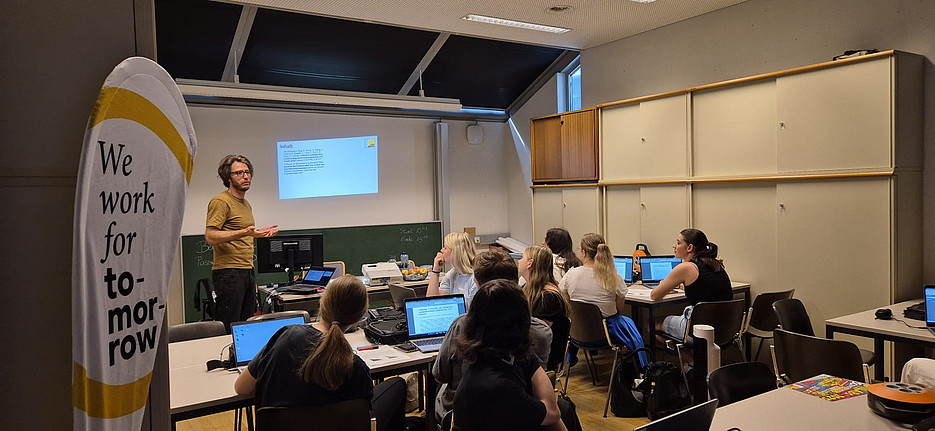
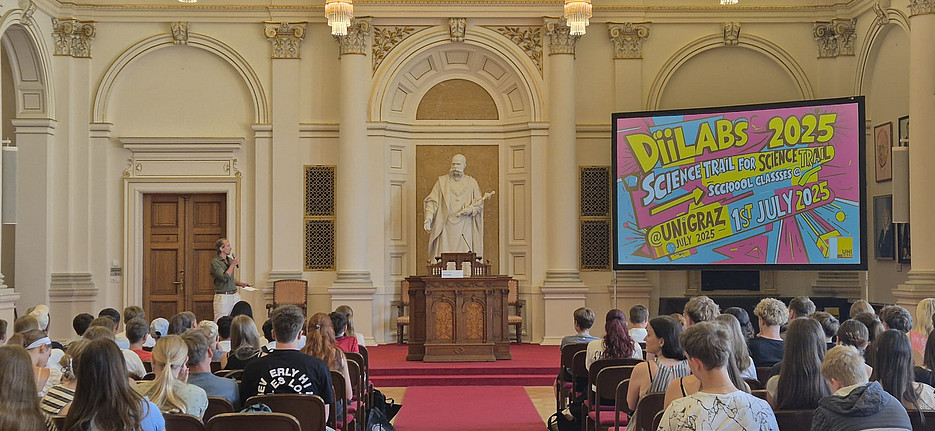
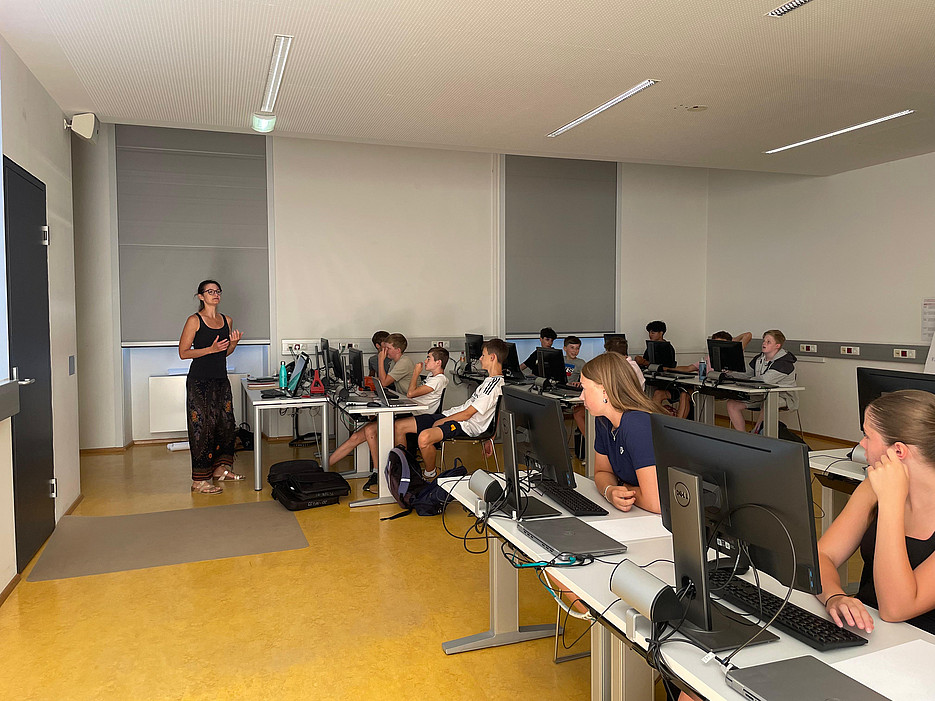
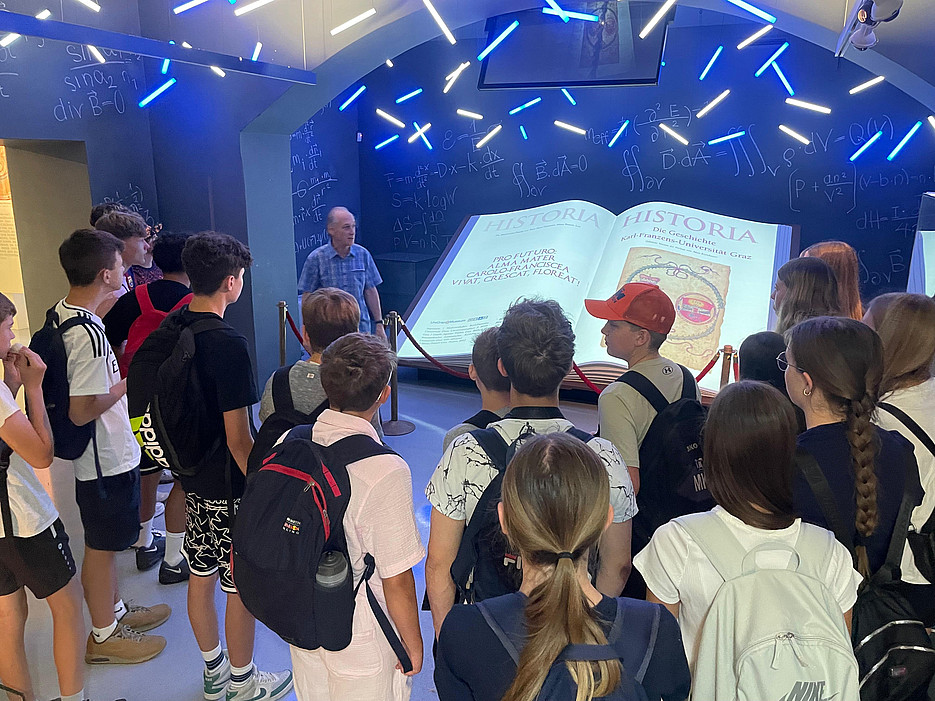
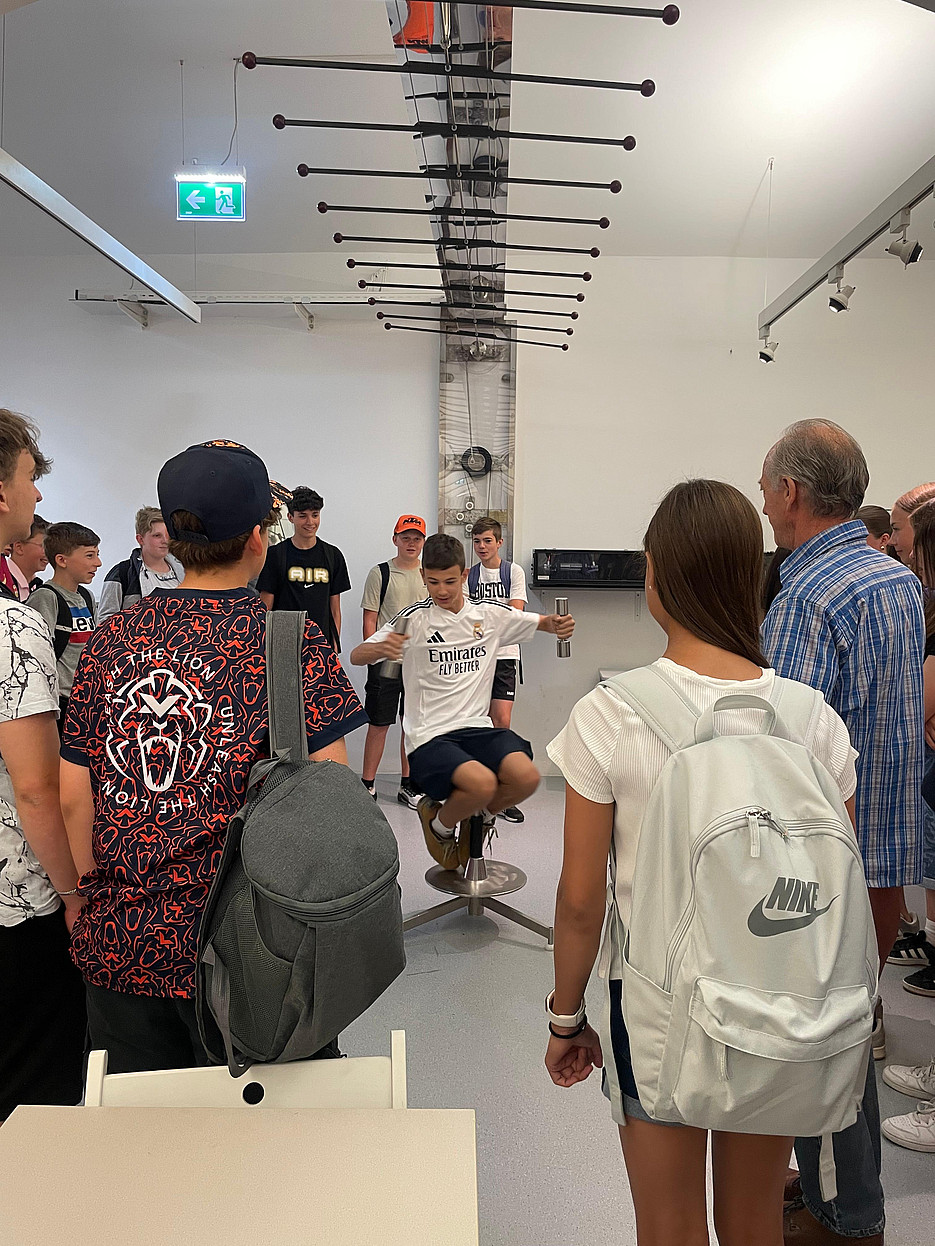
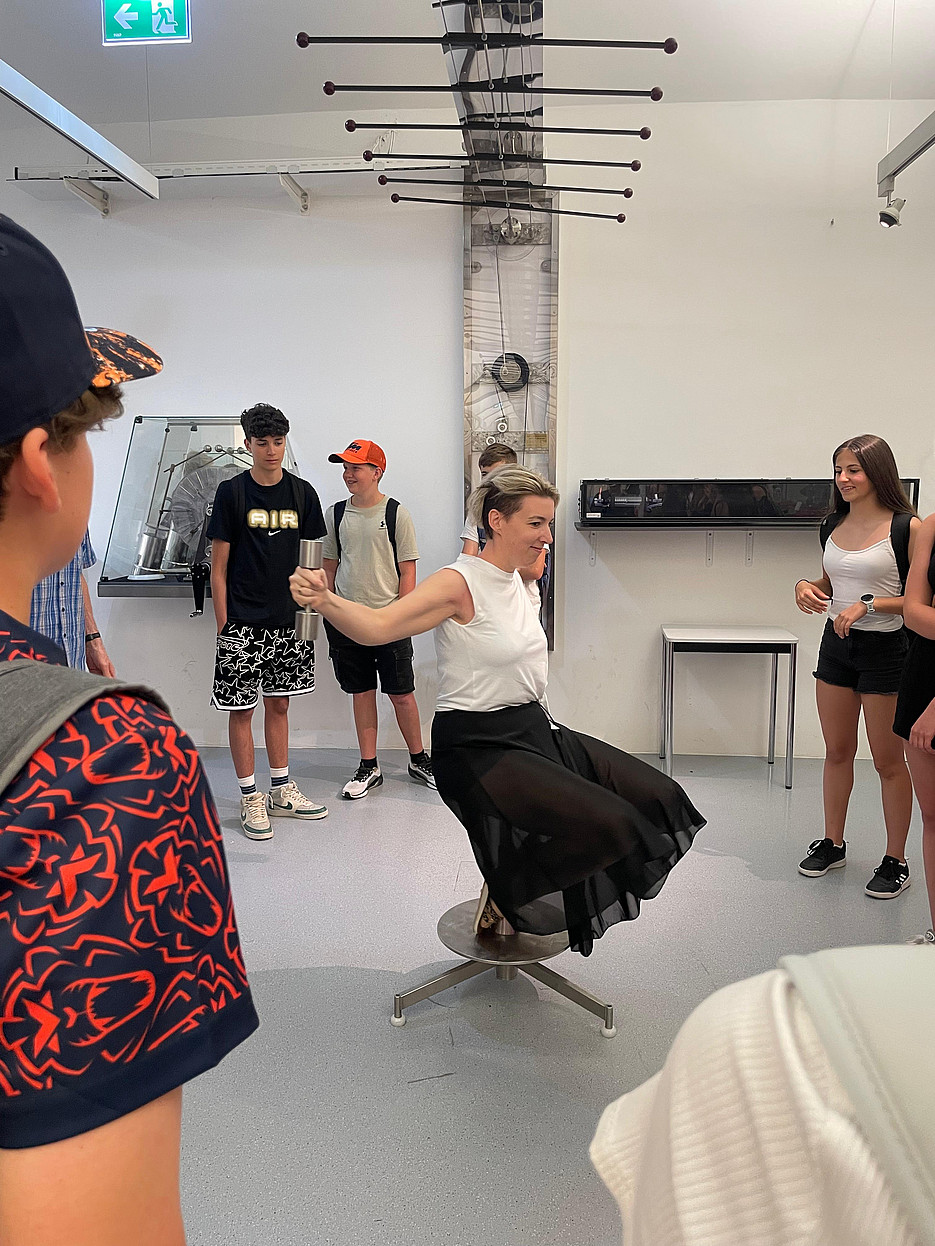
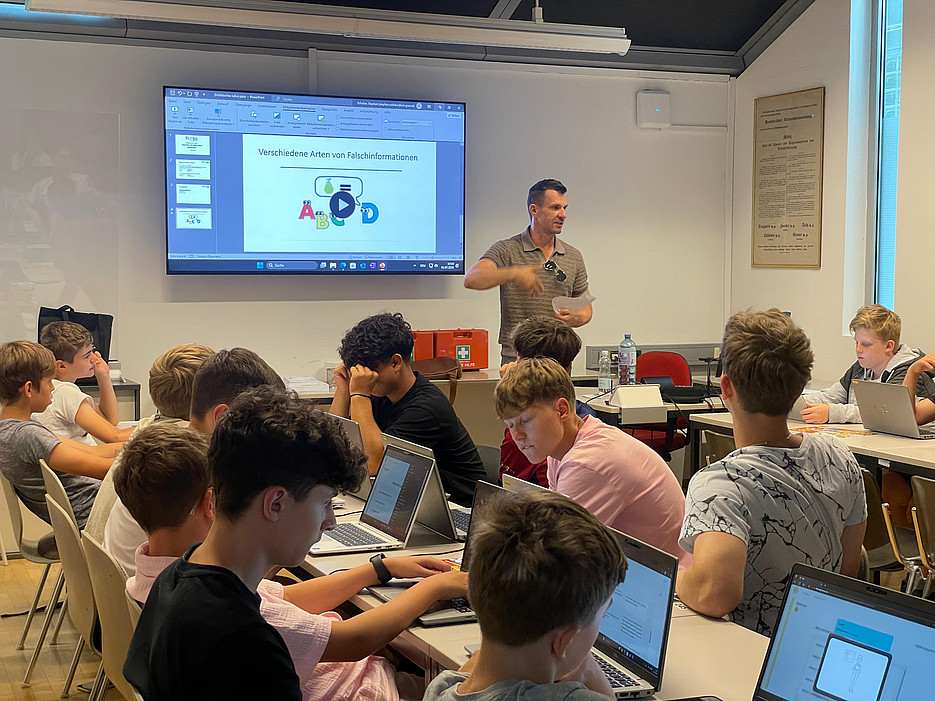
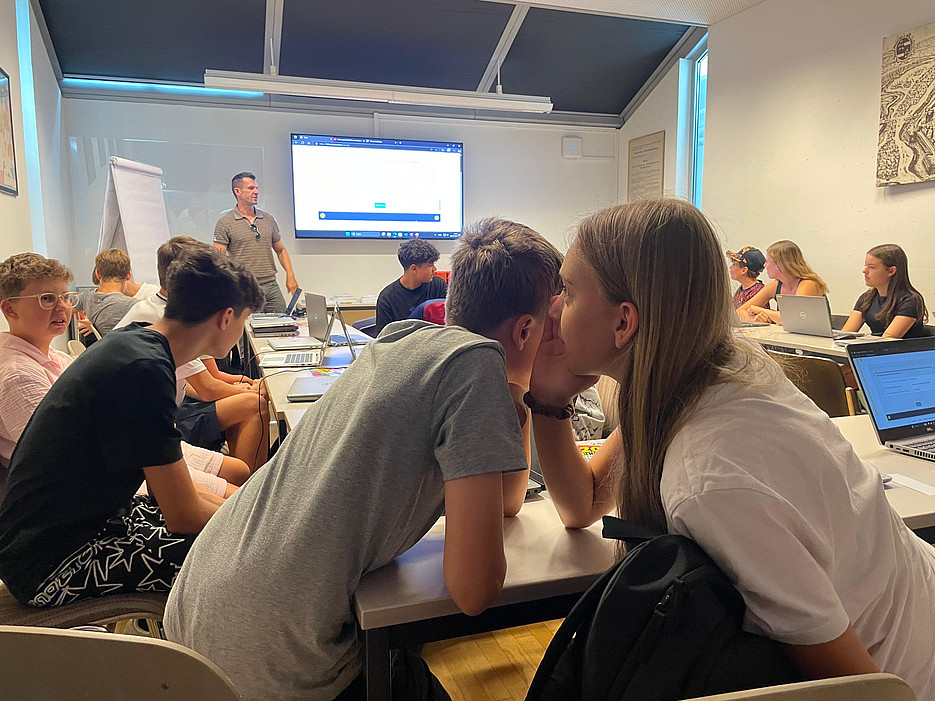
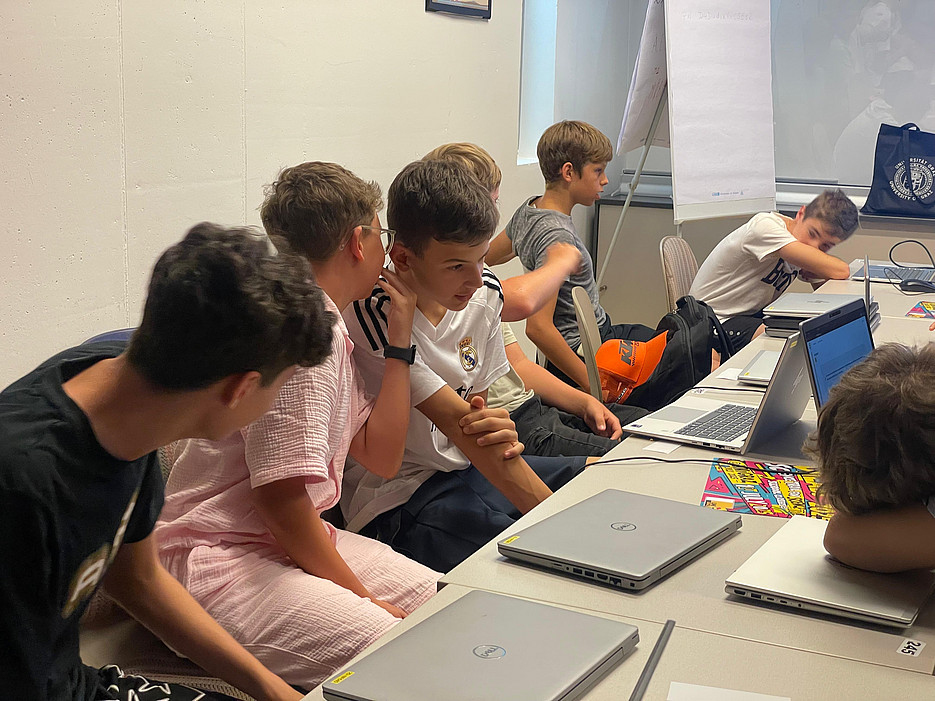



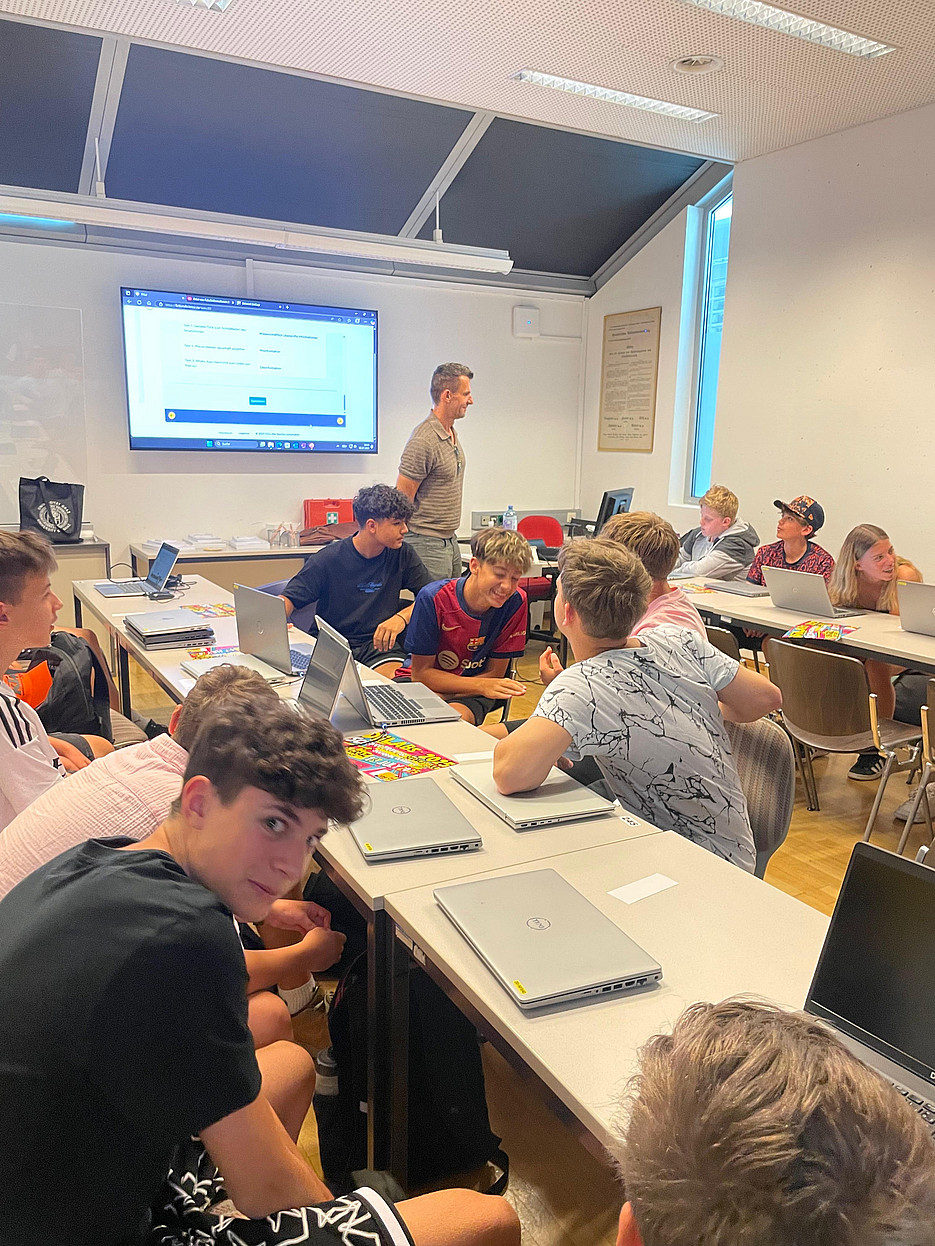
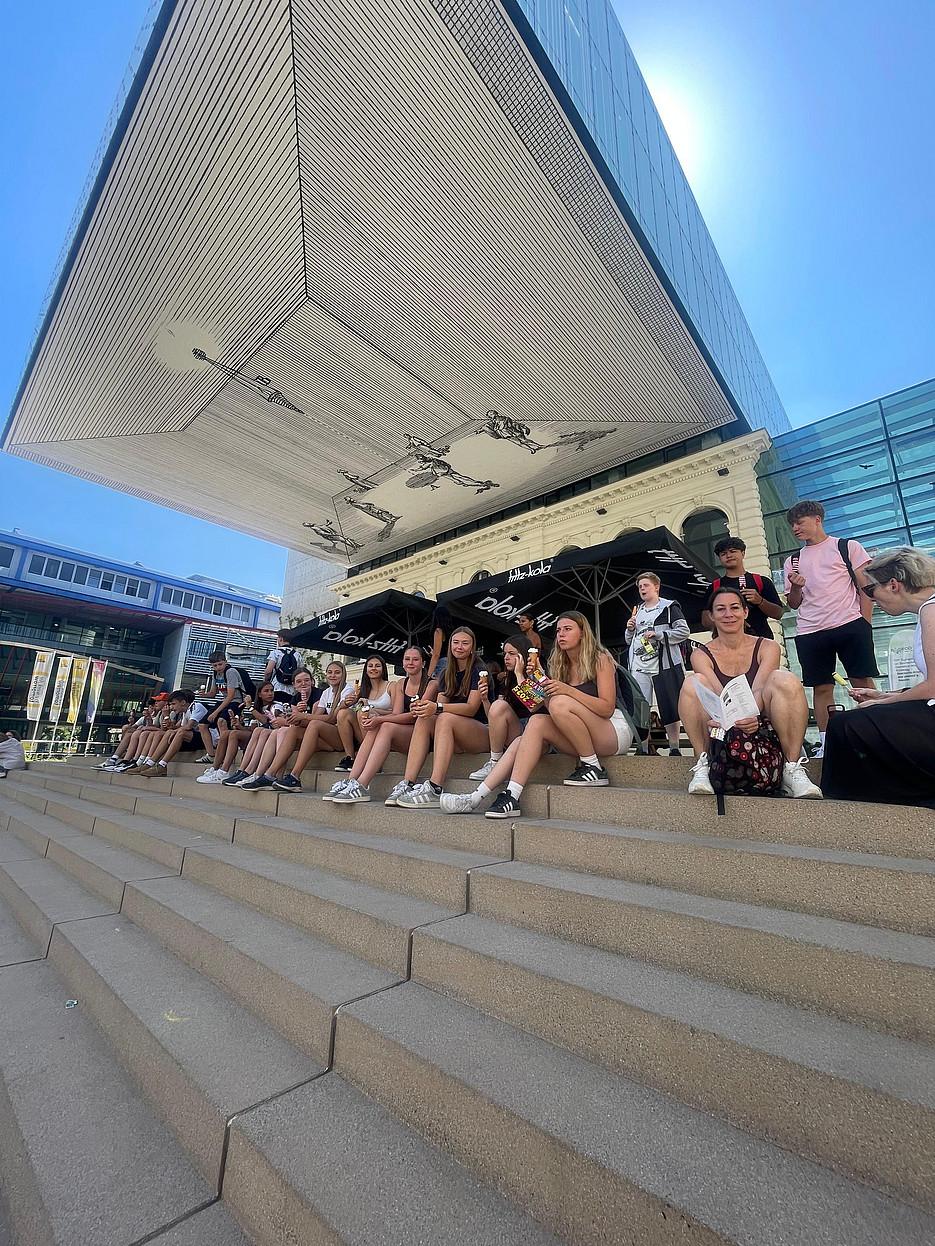

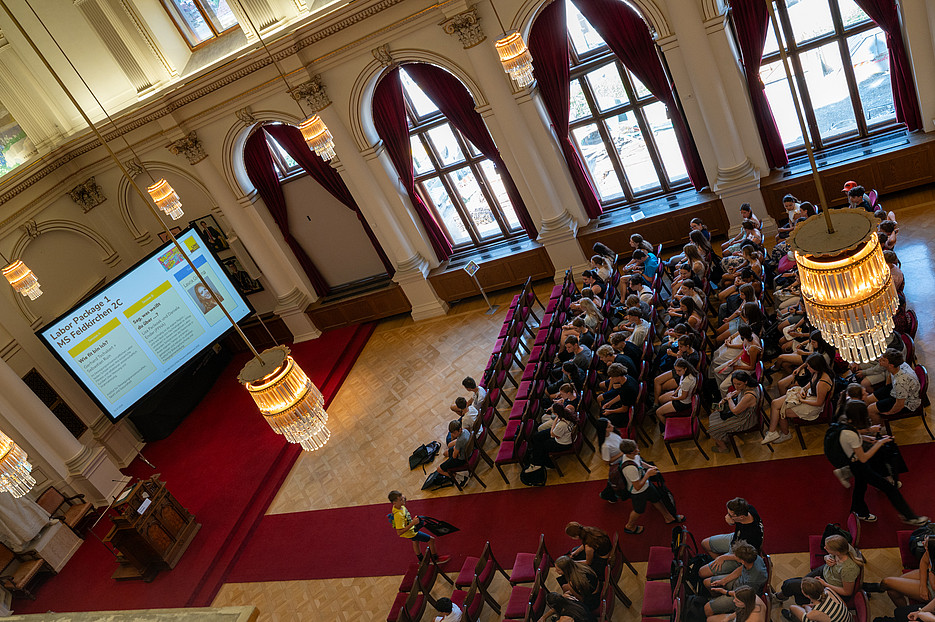
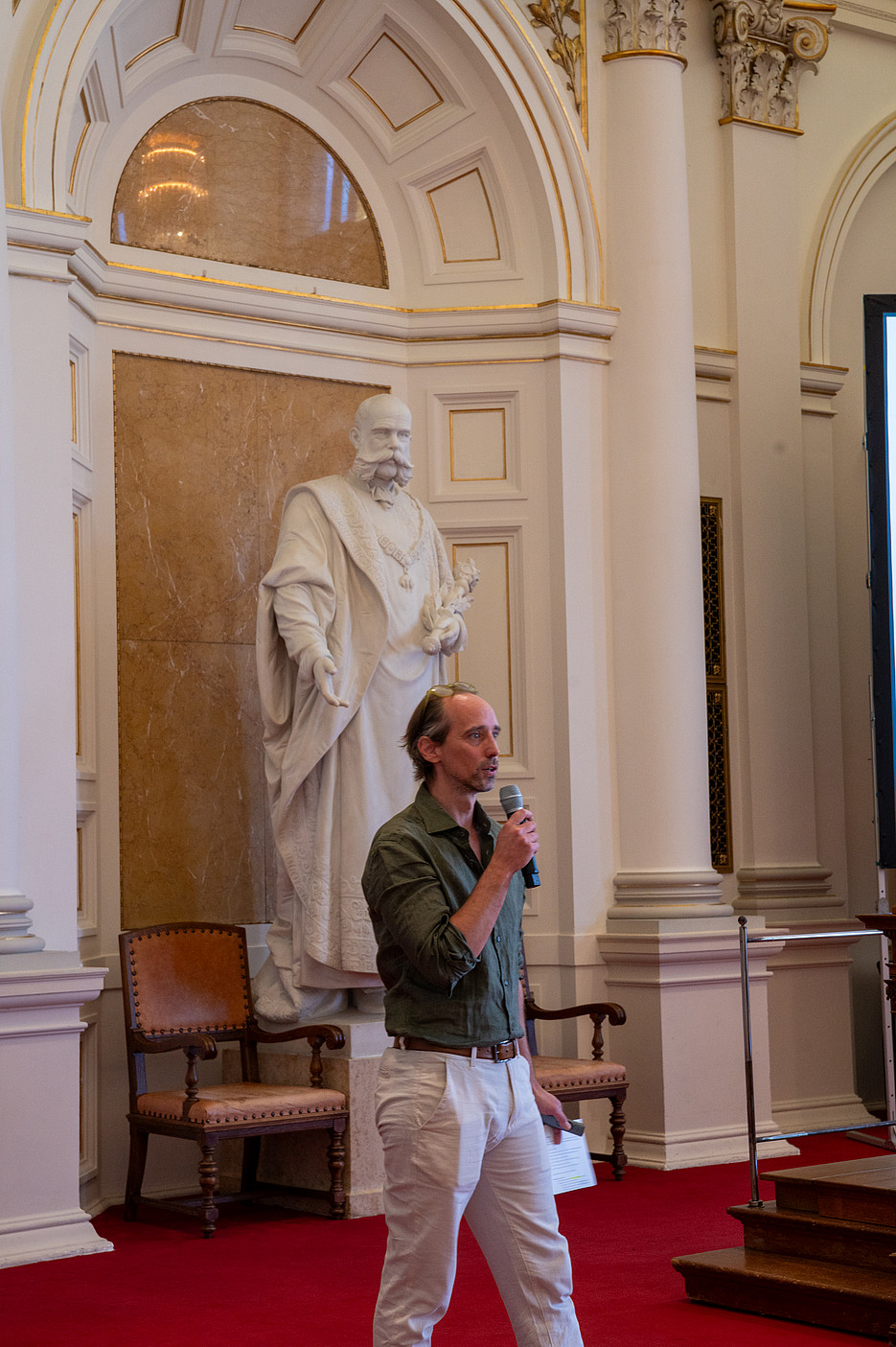
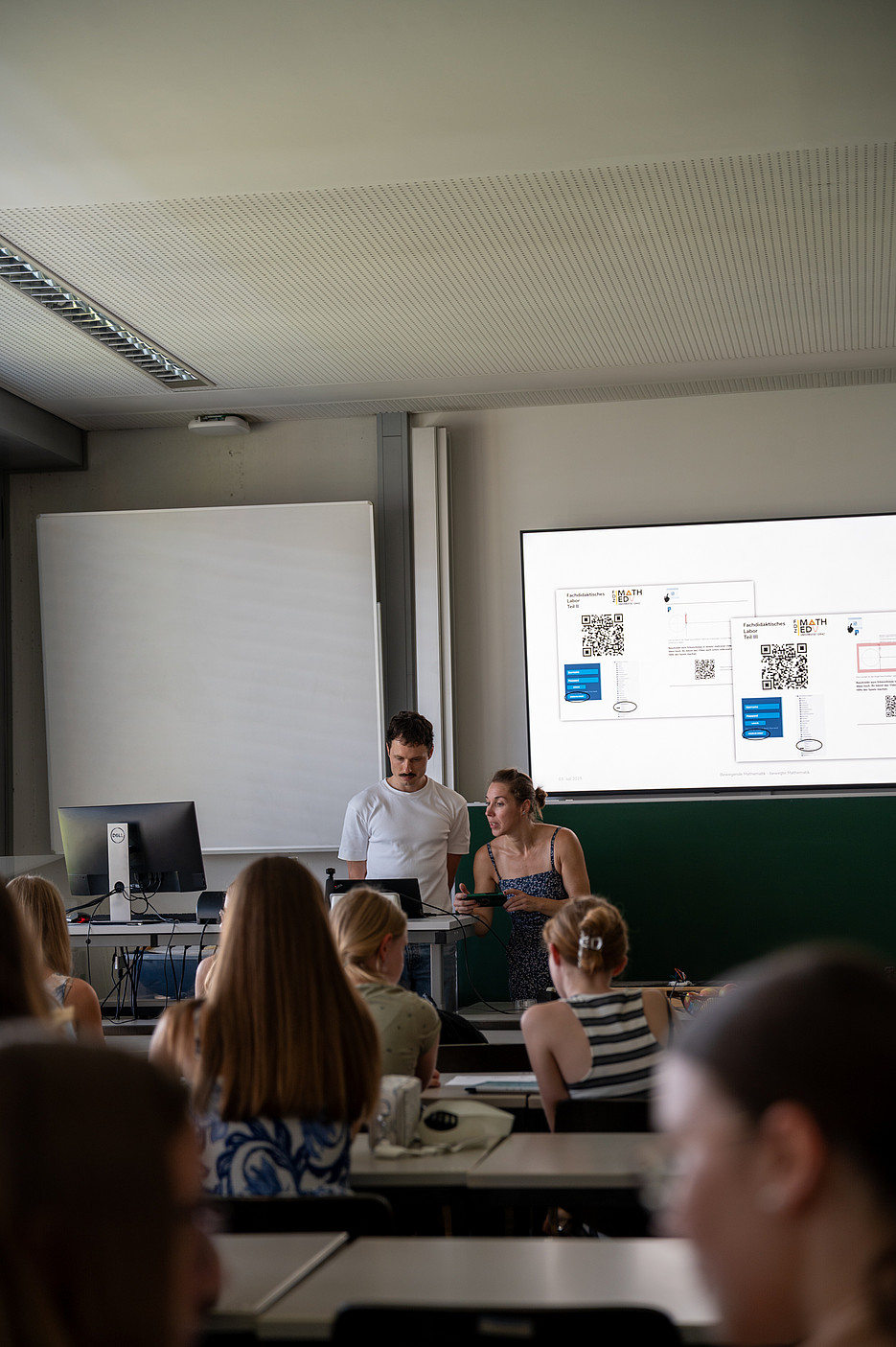
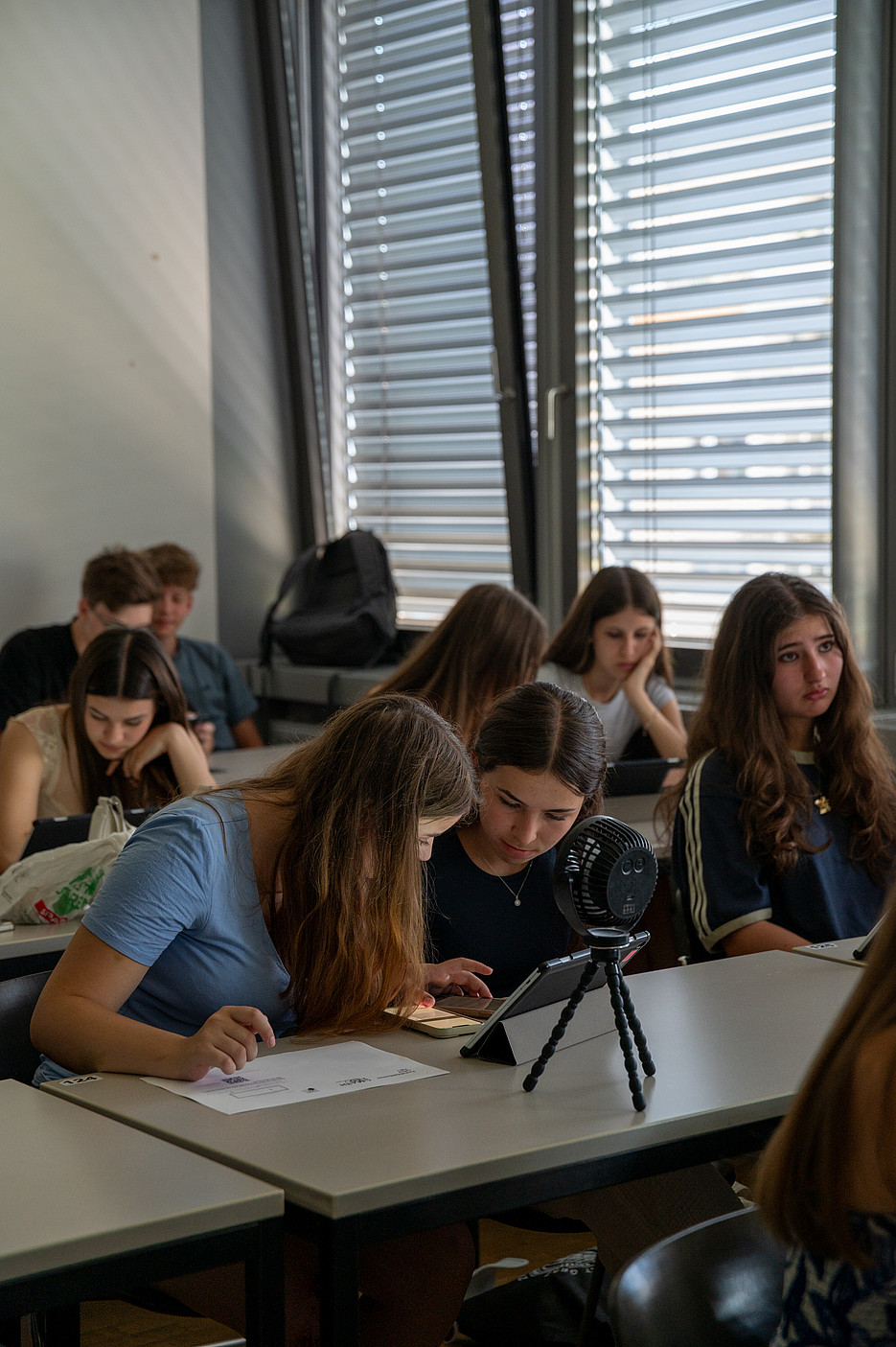
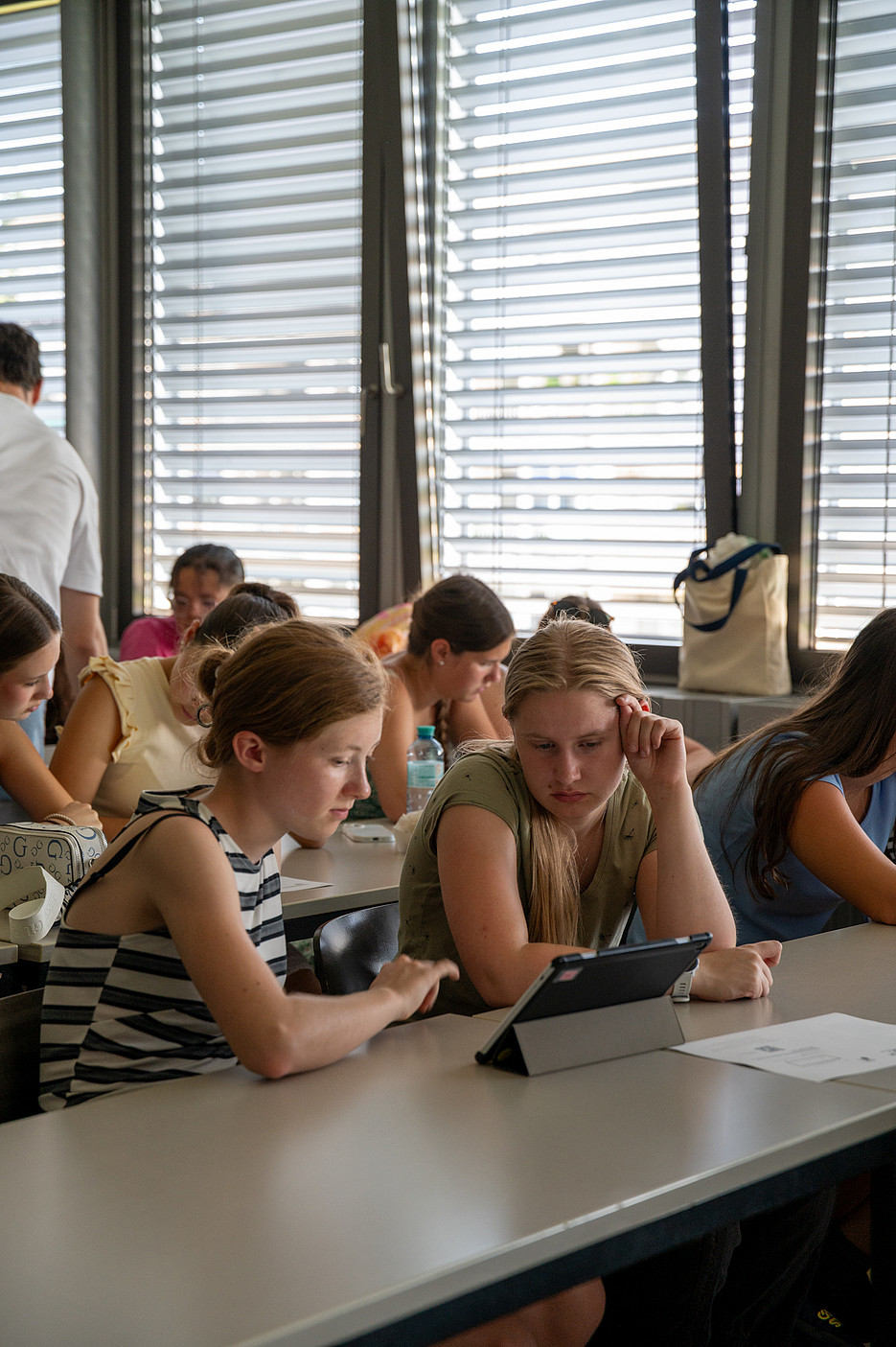
On 1 July 2025, the FUTURE EDUCATION research network at the University of Graz invited 136 pupils - six Styrian school classes and their teachers - to an exciting morning: In eight didactic labs from the fields of STEM, languages, plurality and diversity, the pupils were able to try out various teaching materials, familiarise themselves with laboratories, carry out tests and get to know the Unicampus as part of a science trail.
Target group and programme:
The science trail is aimed at secondary school classes and invites them to engage with topic-specific content, including through play and experimentation. Each class takes part in two of the eight didactic labs on offer. Together with our guides, the pupilstheir teachers and accompanying adults also discover special highlights on the university campus. We take care of the snacks! Please bring your own water bottles - these can be refilled on campus.
On the science trail students can experience how interesting and relevant science and research are for everyday life. The morning is a good opportunity to get to know the university as a place where encounters take place and where innovations in the field of education are created. The science trail aims to create space for networking between school and university.
The didactic labs:
| Lab Packages | Session A | Session B |
BOOKED OUT!
| How fit am I? Gerhard Tschakert Everyone is talking about fitness and fitness sports. But what exactly is fitness, how is it measured and how fit am I myself? And above all, does fitness mean the same thing for everyone? In this didactic lab pupils gain an insight into the university's exercise science laboratory. They are given the opportunity to take a practical self-test that can help them with this,
| Tell me, what do you know about ...? Lisa Paleczek + Daniela Ender How well do the pupils actually know their own region? How can they integrate sustainability into their everyday lives? How can all pupils work together on a topic - even if they don't all read or understand at the same speed? In this didactic lab, the pupils go on a journey of discovery through Styria using reading and learning materials and explore the topic of sustainability - digitally, interactively and at their own pace. The pupils
Projects: RegioDiff, RegiNaDiff, Easy as pie |
BOOKED OUT!
| How can recognise fake news recognise? Stephan Schicker Do we check content on social media before we share or like it? How can we recognise fake news and refute it at the same time? Recognising and refuting fake news requires a critical look at texts and their language. In this didactic lab, students learn how to use the learning platform Fictional Science learning platform. On this learning platform, you can attend a course to become a professional fact checker and receive a certificate at the end. | Do what you can! Barbara Weißenbacher When choosing a career, it's all about your own talents and not just your personal interests. But how can you find out what suits you best? In this didactic laboratory pupils tips and carry out practical self-tests to help them do this,
|
BOOKED OUT!
| Do what you can! Barbara Weißenbacher When choosing a career, it's all about your own talents and not just your personal interests. But how can you find out what suits you best? In this didactic laboratory pupils tips and carry out practical self-tests to help them do this,
| How fit am I? Gerhard Tschakert Everyone is talking about fitness and fitness sports. But what exactly is fitness, how is it measured and how fit am I myself? And above all, does fitness mean the same thing for everyone? In this didactic lab pupils gain an insight into the university's exercise science laboratory. They are given the opportunity to take a practical self-test that can help them with this,
|
BOOKED OUT!
| Should we eat insect burgers in the future? Victoria Reinsperger Should we eat insect burgers in the future to protect the climate? Questions like these are important if we want to shape our future sustainably - and at the same time are socially controversial. How can we actively participate in their negotiation and find consensual solutions? What linguistic tools do we need for this? How can we take different perspectives into account? In this didactic laboratory Pupils will get to know teaching materials for multi-perspective argumentation on a controversial question about climate change. These are intended to help,
| What influence does social media have on mental health? Muhammed Akbulut Is vaping the new smoking? Does it make sense to train to muscle failure during strength training? And what influence does social media have on mental health? Questions like these are not only the subject of controversial debate in the scientific community, but are also relevant for students of everyday relevance. In addition, they harbour great potential for arousing interest in science and teaching the basics of scientific thinking and writing. In this didactic laboratory pupils get to know teaching materials for scientific writing. These are intended to help
|
CANCELLED!
| The 1.5° target in danger! Michael Fischer In 2019, a well-known science magazine published an article on the topic of "Endangering the 1.5°C climate target". The article points out that many old fossil-fuelled power plants are still in operation around the world. It is particularly striking that almost half of the active coal-fired power plants were only built after 2004. But what does this mean for our 1.5-degree target? Can we use school maths to come to similar conclusions as the authors of the article? These and other questions will be answered by the students in this didactic lab using publicly available data and methods. This offer originates from the project "New topics for ESD and maths lessons, both scientific and interesting", which is funded by the Sustainability Award 2024 in the Learning category with silver. | Moving maths - mathematics in motion Christoph Oberbucher, Christina Krause Maths is often seen as an abstract juggling of symbols that only takes place "in the head". But we want to show this: Maths can also be experienced physically! In this didactic laboratory pupilsexperience how closely movement and physical experiences are linked to learning maths. The pupils
|
CANCELLED!
| Moving maths - mathematics in motion Christoph Oberbucher, Christina Krause Mathematics is often seen as an abstract juggling of symbols that only takes place "in the head". But we want to show this: Maths can also be experienced physically! In this didactic laboratory pupilsexperience how closely movement and physical experiences are linked to learning maths. The pupils
| The 1.5° target in danger! Michael Fischer In 2019, a well-known science magazine published an article on the topic of "Endangering the 1.5°C climate target". The article points out that many old fossil-fuelled power plants are still in operation around the world. It is particularly striking that almost half of the active coal-fired power plants were only built after 2004. But what does this mean for our 1.5-degree target? Can we use school maths to come to similar conclusions as the authors of the article? These and other questions will be answered by the students in this didactic lab using publicly available data and methods. This offer originates from the project "New topics for ESD and maths lessons, both scientific and interesting", which is funded by the Sustainability Award 2024 in the Learning category with silver. |
Timetable for 01.07.2025:
08:45-09:15 | Welcome & opening in the auditorium in the main university building (Universitätsplatz 3, 8010 Graz)
09:15-09:45 | Change of location with guide including 'Highlight at the Unicampus'
09:45-10:45 | Didactic Lab - Session A
10:45-11:15 | Change of location with guide including 'Highlight at the Unicampus'
11:15-12:15 | Didactic Lab - Session B
12:15-12:30 | Conclusion and presentation of the certificate of participation
Registration:
Teachers can register their school classes via e-mail by e-mail. Please let us know which lab package you would like to book for your class. Registrations will be ranked according to the time of arrival.
Please provide the following information when registering:
School
School level
Number of Pupils
Contact person + telephone number + e-mail
Number of the desired lab package (1 - 6)
The following applies: First come, first serve! Jach lab package can only be booked as a complete package and only once, i.e. for one school class!
